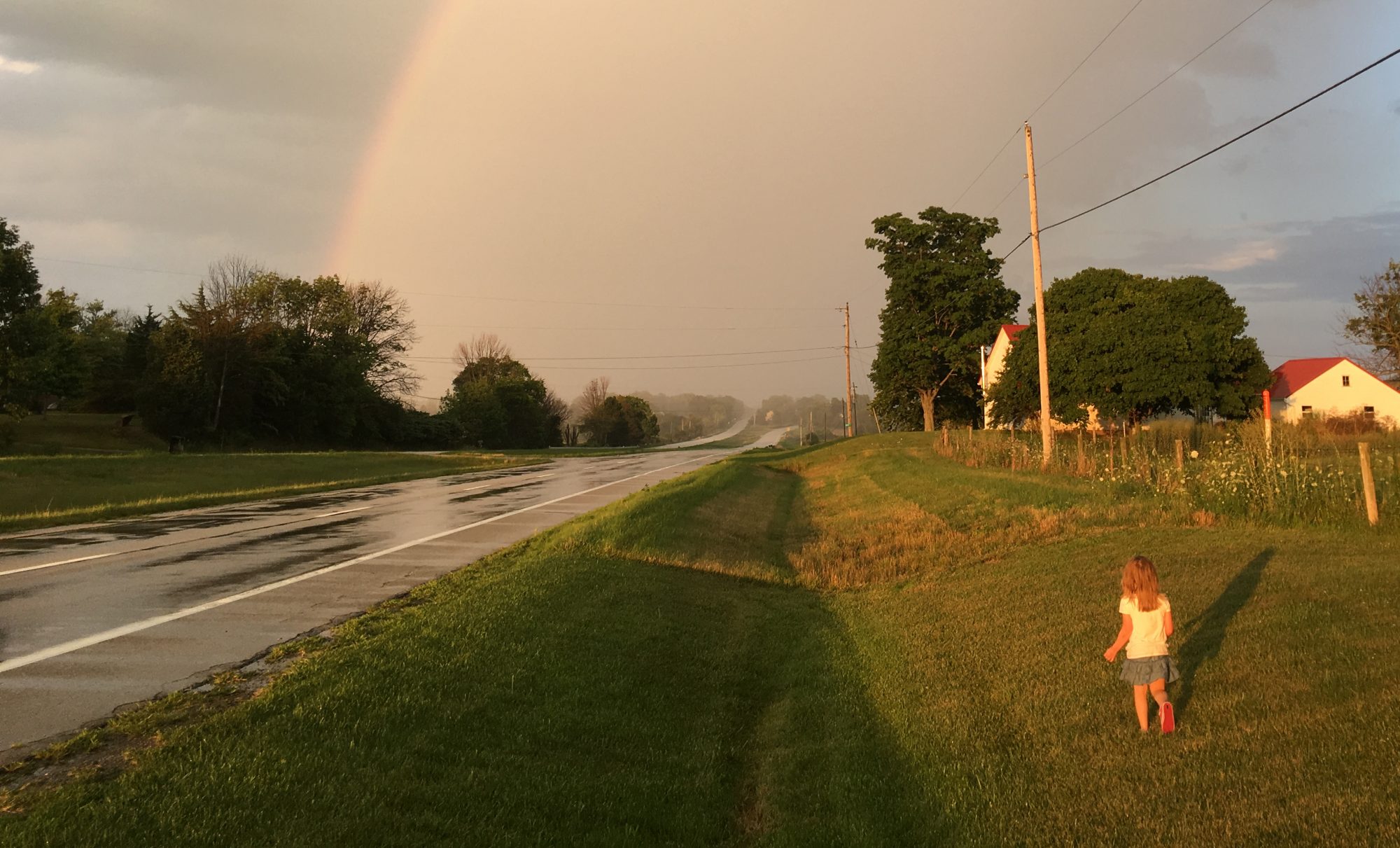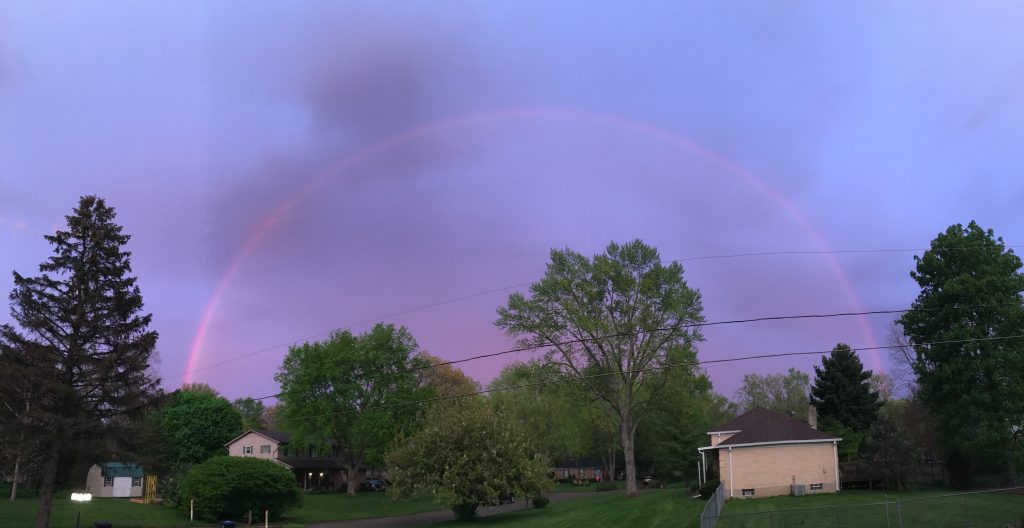Lilly pondered the plot of earth at her feet. The plants no longer bore the spotted blight that had destroyed the prior year’s crop. There were contingencies, of course, but she missed the potatoes. The soft golden variety had always been a favorite of her mother’s, with the churned creme and topping of the wild onions she was so fond of gathering. The village had never grown domesticated onions, probably because they were more for seasoning than raw caloric fuel. And Lilly had been on one of those foraging ventures when mother had gone missing. The town’s militia had mobilized a search, but no trace was ever found. Perhaps it was better that way. Without closure, there was hope.
But for now, the nostalgia of that simple potato recipe occupied Lilly’s consciousness. She bent down to examine the plant in greater detail, aware that her skin-tight blouse and short skirt (donned to cope with the day’s heat) was putting on a show for the young men in the field. But it was a small village, and reputations were eternal, so they pretended not to notice and turned a gentlemanly gaze back to their own crops. Inwardly, Lilly smiled. She enjoyed the attention.
Her cool exterior, however, was shattered when her shouldered rifle slipped out of place. She made a fumbled attempt to control it, but only managed to hook a forearm through the sling. The weapon crashed into the potatoes. She cursed, and inspected the damage. A snapped stem and some dislodged leaves. But potatoes were resilient to physical punishment, so it was a minor injury.
This was also why those working in the fields chose pistol weapon variants. But the rifle was her mother’s (mother was a much taller woman), and she stubbornly insisted on carrying it as her required small arm. Her father, recognizing his late wife’s stubbornness, had long since ceased to argue on the practicality. And besides, she was an exceptional aim with it, never having effectively wielded a pistol. Why take what you can use?
One of the young men had made a move towards her after witnessing her momentary plight, but had aborted once determining his presence would be unnecessary. He resumed his work, hoeing weeds—efficient and practical sidearm holstered at the belt line on his back—practical and out of the way. He pretended not to notice Lilly’s glower as she examined his weapon choice. She sneered, and made a mocking assessment of his manhood through the obvious correlation.
Sensing the silent hostility, the man moved further down the row and resumed working. The other men now too resumed, having reflexively flinched away from the dropped rifle’s aim and its inherent hazard to life and limb.
Lilly turned back to her own potatoes. This batch was starting to brown. It was about time to harvest. Prematurely, she dug her hands into the sun-hardened dirt and felt for a tuber. Successful, she severed it with her knife and withdrew a fist-sized potato. She smiled, examining its blight-free exterior, and became giddy in anticipation of the harvest pre-party. She would need to go on an onion search, but first she wanted to show father. He too would reminisce. He had also been deeply disheartened by the prior year’s failed crop, and appeared to have taken it be final confirmation his wife had indeed taken the Grey Path. This would raise his spirits.
She stood, shouldering the oversized rifle once again, and grabbed her linen bag. She placed the potato within, then shouldered it too. Off she marched, along the row, careful to avoid trampling any desirable plants, and quite successful through years of practice. The rifle almost comically hung to the back of her knee, but it too was a burden overcome through practice. A breeze sent her skirt fluttering and she smiled again, knowing her egress was being monitored.
Father was on the roof of their brick cottage, his own sidearm affixed to the hip. It was bright yellow–old manufacture, from before, and not suited for outdoor combat. The last rainstorm had brought hail, and while the damage had been insignificant to the crops, the slate roof tiling had suffered casualties. He was carefully fitting squares, securing them with tar. It was hot and difficult work. And father was getting old. Lilly felt the need to point this out.
“The alternative is to enlist the help of someone younger, but for that, you’d have to make a friend.” Father’s reply.
“I assume you mean one the local degenerates?”
“They won’t be young forever. Time mellows a man, and you’ll find them more to your liking once they get older. Perhaps you should go into town and meet some.”
Lilly grumbled. He was at it again. Father had never been overly-protective, in spite of events. But he was also never hesitant to suggest she consider starting her own family, not that he felt she wasn’t capable of solitary survival of course, but as he had often said, the world was a lonely place. He was right of course, and it was irritating.
She changed the subject. “The potatoes are almost ready.” She withdrew the potato from her bag and held it aloft as if it were a sacred icon.
Father smiled. “It’s about that time of year, isn’t it?” He didn’t mean the time of harvest. He meant it was when mother had gone missing. It was why Lilly had brought home the potato a week early. It was the exact calendar week of that incident, though she hadn’t realized it consciously.
Lilly paused. Father, knowingly, said nothing further, but didn’t avert his gaze, either. He had grown patient, and always waited for Lilly to finish her thoughts, even though at the moment, she wouldn’t. Gradually, his stare softened.
“I have some fresh milk.” He, too, had thought of the potatoes this week, and had bought what they didn’t normally keep in-house.
Both knew where the conversation would go next, but father made Lilly say it anyway. “I have to go get another ingredient…” Father silently interjected, but the words failed him. He meant to protest, but made no motion to stop her, eventually yielding with a simple nod before breaking eye contact and resuming placing shingles. The woods had never been welcoming.

